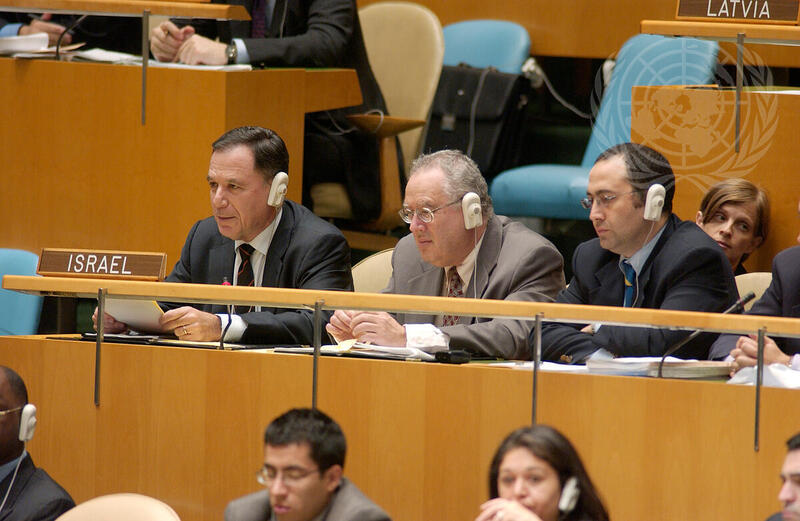India has once again decided to exercise abstention on a key vote in the United Nations General Assembly session regarding Israel's continued occupation of the Occupied Palestinian Territories. On Wednesday, India was among 43 countries that exercised the option of abstaining on a resolution that called upon Israel to vacate its "unlawful presence" from the Occupied Palestinian Territory within the next 12 months. The 193-member General Assembly passed the resolution with 124 voting in its favor, 14 against, and 43 abstentions, which included India. The decision of abstaining marks India within the same stance that has been so far maintained in years over Israeli-Palestine conflict. Permanent Representative of India to the UN, Ambassador Parvathaneni Harish explained that: "India abstains from the vote today. We have always been vocal in our appreciation for dialogue and diplomacy. We think that conflict can only be resolved through dialogue." he said, through direct and meaningful negotiations on both sides, can bring peace.

India's Preferred Path
India has always maintained that a two-state solution would be a minimum achievement in resolving the Israel-Palestine conflict. The two states, Israel and an independent Palestinian state. Indian foreign minister S. Jaishankar has reiterated this position numerous times in the past. He has already called for meaningful negotiations across both Israeli as well as Palestinian concerns. India's commitment to this solution is deep-rooted. Given that India has gradually established strategic and economic connections with Israel over the years, its stance is sensitive and multi-layered. While India "condemns terrorism," a call for peace can be well-balanced. "We strongly condemn the terror attacks on Israel on October 7, 2023. We condemn the civilian casualities. we demand an immediate cease fire and lift of the hostage," said Ambassador Harish while briefing for the explanation of vote by India. He also marked the need for access to unimpeded and sustained humanitarian assistance in Gaza that has bore the brunt of the war.

Why Did India Abstain?
The decision abstains exemplifies the broad foreign policy principles of India, especially its focus on non-interference. In fact, India has always been a proponent of dialogue and diplomacy as the means of conflict resolution and has refrained from taking sides in intricate global disputes in which it might compromise its strategic interests. Ambassador Harish also said that the stand of India on the conflict in Israel and Palestine is very clear and it has been consistent. "Our position on this conflict has been clear and consistent. we unequivocally condemn the terror attacks on Israel. we call for an immediate ceasefire and release of hostages," he said. He pressed further that humanitarian help, especially to Gaza, where things have become desperately bad with the continuing hostilities. Many states, including Australia, Canada, Germany, and the UK, abstained from the vote with India. Israel and U.S., has been rigid on several U.N. resolutions pertaining to its behavior in Occupied Palestinian Territory. The U.S. and Israel voted against the resolution; other countries like India take a neutral stance so that the diplomatic doors are kept open with both parties. Ambassador Harish said, "A concerted effort should aim to bring the two sides closer, and not drive them further apart. We should work towards building bridges, not continuing to dig trenches." he also added "There are no winners in conflict," Harish said as he reiterated that only a two-state solution achieved through direct and meaningful negotiations between both sides "will lead to enduring peace".
Inputs by Agencies
Image Source: Multiple Agencies
Ⓒ Copyright 2024. All Rights Reserved Powered by Vygr Media.
























